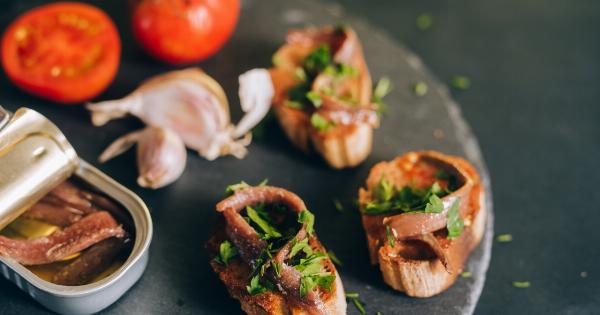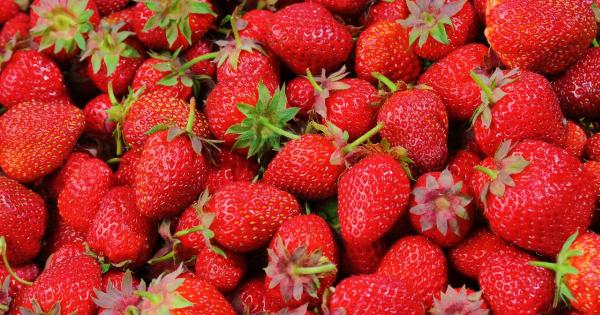During pregnancy, the body goes through numerous changes both physically and hormonally to support the growing fetus.
As a result, it is essential for expecting mothers to consume a well-balanced and nutrient-rich diet to meet the needs of both the baby and the mother. In this article, we will discuss the essential nutrients for a healthy pregnancy.
Protein
Protein is an essential nutrient that plays a crucial role in the development and growth of fetal tissues, such as the brain and muscles, while also supporting the maternal and fetal blood supply.
Pregnant women should aim to consume at least 70 grams of protein a day. Good sources of protein include:.
- Lean meat, poultry, and fish
- Eggs
- Beans and lentils
- Tofu and other soy products
- Nuts and seeds
Folate
Folate, or folic acid, is a critical nutrient during pregnancy, as it helps in the formation of the neural tube, which becomes the brain and spinal cord. Folate deficiency can lead to severe birth defects of the brain and spine.
Expecting mothers should consume at least 400 micrograms (mcg) of folate a day. Good sources of folate include:.
- Leafy green vegetables, such as spinach and kale
- Oranges and other citrus fruits
- Legumes, such as chickpeas and lentils
- Fortified cereals and grains
Iron
Iron plays a crucial role in the production of hemoglobin, the protein responsible for the transportation of oxygen in the blood.
During pregnancy, the demand for iron increases, as the developing fetus also requires iron for its red blood cell production. Expecting moms should aim to consume at least 27 milligrams of iron a day. Good sources of iron include:.
- Lean meat, poultry, and fish
- Fortified cereals and grains
- Beans and lentils
- Leafy green vegetables, such as spinach and kale
Calcium
Calcium is an essential nutrient that helps in the formation and development of strong bones in both the developing baby and the mother. Pregnant women should aim to consume at least 1,000 milligrams of calcium a day. Good sources of calcium include:.
- Dairy products, such as milk, yogurt, and cheese
- Leafy green vegetables, such as bok choy and collard greens
- Tofu made with calcium sulfate
- Fortified cereals and grains
- Calcium-fortified juices and beverages
Vitamin D
Vitamin D is a critical nutrient during pregnancy, as it helps in the absorption and utilization of calcium, promoting strong bones and teeth in both the developing baby and the mother.
Pregnant women should aim to consume at least 600 international units (IU) of vitamin D a day. Good sources of vitamin D include:.
- Fatty fish, such as salmon and tuna
- Eggs
- Fortified milk and cereals
- Supplements (under the supervision of a healthcare provider)
Vitamin C
Vitamin C is an antioxidant that supports the immune system while also promoting healthy skin and tissue. Pregnant women should aim to consume at least 85 milligrams of vitamin C a day. Good sources of vitamin C include:.
- Citrus fruits, such as oranges and grapefruits
- Berries, such as strawberries and raspberries
- Kiwi
- Red and green peppers
Omega-3 Fatty Acids
Omega-3 fatty acids are essential fats that are critical for the development of the baby’s brain and eyes. They are also essential for healthy pregnancy outcomes, such as preventing preterm labor.
Pregnant women should aim to consume at least 200-300 milligrams of omega-3 fatty acids a day. Good sources of omega-3 fatty acids include:.
- Fatty fish, such as salmon and sardines
- Flaxseeds and chia seeds
- Walnuts
B vitamins
B vitamins, such as B6, B12, and riboflavin, play a crucial role in the development of the baby’s brain and nervous system while also supporting proper red blood cell formation.
Pregnant women should aim to consume folate as well as maintain adequate levels of B vitamins. Good sources of B vitamins include:.
- Lean meat, poultry, and fish
- Eggs
- Fortified cereals and grains
- Leafy green vegetables, such as spinach, kale, and asparagus
- Legumes, such as peas and lentils
Zinc
Zinc, an essential mineral, plays a vital role in the growth and development of fetal tissues while also supporting the mother’s immune system. Pregnant women should aim to consume at least 11 milligrams of zinc a day. Good sources of zinc include:.
- Lean meat, poultry, and fish
- Whole grains, such as quinoa and oats
- Legumes, such as chickpeas and lentils
- Nuts and seeds
Conclusion
Pregnancy is a crucial time in both the expecting mother and the developing baby’s life.
Consuming a well-balanced and nutrient-rich diet is critical to ensure adequate growth and development while also supporting the mother’s health and wellbeing. It is essential to consult a healthcare provider to ensure adequate nutrient intake and monitor the mother and baby’s health throughout pregnancy.




















